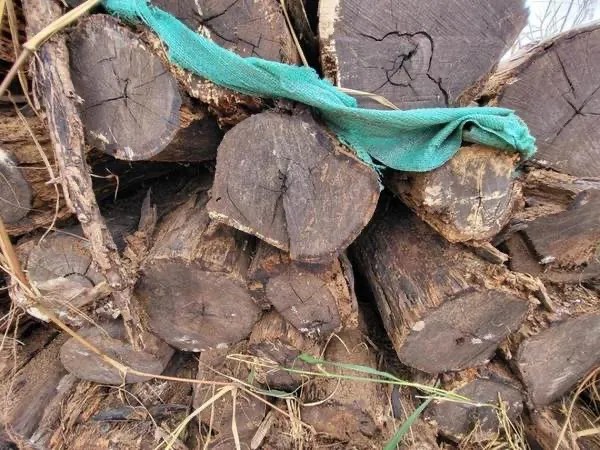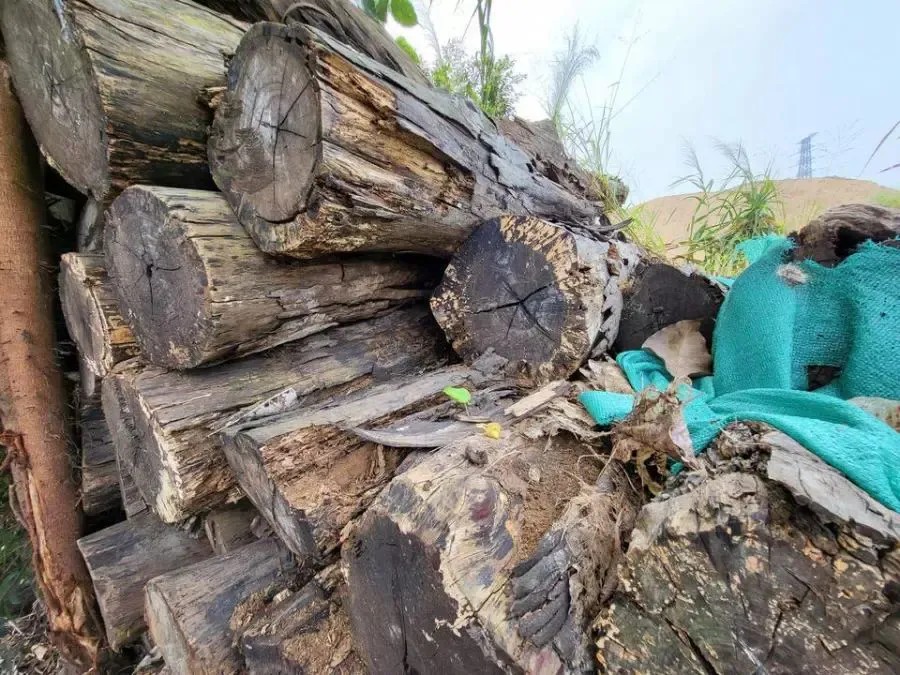Auctioning Movable Assets without an Exact Value: Their Secrets Revealed!
A large pile of Guiboutia conjugata wood, the subject matter of a legal case, has been exposed to the elements for 4 to 5 years, and no one knows its exact weight. But it has been successfully auctioned by the Guangzhou Maritime Court (GZMC) based on the unit price! On March 18, 2024, after its weight was verified to be 386.29 tons in total, the wood was handed over to the successful bidder for a total transaction price of RMB 884,604.
Is this type of auction legal? According to Judge Wang Qiang from the GZMC, the answer is yes. But can it protect the buyer's rights and interests? In fact, it is safe as long as the goods weight is verified!
This innovative form of auction has enabled the long-standing backlog of assets involved in the case to be liquidated, preventing further deterioration and greater losses. This approach opens up new avenues for future auctions of large quantities of similar items.
Three unsuccessful auctions turn the goods into a hot potato.
This batch of Guiboutia conjugata came from Africa. In 2022, it was put up for three auctions by another court, but none was successful. Due to unpaid storage fees, the wood became the subject of a lawsuit brought by a dock company in Dongguan to the GZMC for enforcement. After accepting the case, the case handler visited the timber yard to investigate and analyze the reasons for failed auctions by another court. According to market practices, this type of wood is priced based on weight. But after years of staying in the open air, the wood had decayed significantly, resulting in a weight deviation from the original purchase order. So, what was the actual weight of the goods? The answer could only be known through a thorough inspection and weighing process. Yet, given the enormous quantity, weighing would be both laborious and potentially costly. Just the cost of loading, unloading and transportation could be significant, let alone appraisal fees. Without a high likelihood of a successful auction, the applicant was unwilling to bear these costs. And with only an estimated weight provided, bidders were understandably uncertain. These would risk another unsuccessful auction.

Judge's innovative approach makes the wood popular in the auction.
Faced with the challenge, the case handler considered bidders' concern about the significant discrepancies in total weight. Accordingly, the judge proposed a novel approach: auctioning based on the unit price of the same type of goods and calculating the total price based on on-site weighing after successful auction. After conducting thorough research in the local timber market, the case handler proposed a reference price based on the intended purchase unit price provided in writing by two mahogany furniture manufacturers. This proposal was then submitted to the collegiate panel for discussion, and they unanimously agreed on the proposal: auctioning the wood at a price per hundred tons, and calculating the total price of the goods based on on-site weighing upon successful auction.
This new approach completely dismissed bidders' concerns. The auction for this batch of wood officially began at 10 a.m. on February 26, 2024. The starting price was set at RMB 100,000 per hundred tons, with increments of RMB 1,000 per bid. The auction webpage attracted nearly 4,000 viewers and 83 people set reminders, while 9 registered to bid after over a month of publicity. By 12:32 on February 27, after 105 intense bids and 96 extensions, the Guiboutia conjugata wood was sold at a price of RMB 229,000 per hundred tons, with a premium rate of 129%.

Active justice: innovative solutions to online auction challenges.
Mr. Han Tiegang, the person in charge of online judicial auctions at the GZMC, noted that auctioning bulk commodities based on unit prices can greatly alleviate bidders' concerns and stimulate the enthusiasm of potential bidders to participate in auctions. The starting price for the auction in this case was set per hundred tons to conform to the judicial auction system and to avoid an unduly low bidding threshold that might arise from insufficiently small deposits. In a unit-price auction, the starting price can be set per ton, per hundred tons, or per thousand tons, depending on the type of the item. Mr. Wu Guining, Director of the Enforcement Bureau, GZMC, stated that it was the first time for the Court to auction bulk commodities based on the unit price. No other court in China has conducted such an auction, according to a search on Alibaba's Judicial Auction Platform. Industry experts highlight that judicial auctions of bulk materials such as sand, gravel, coal, ore, and the like, have all encountered the aforementioned difficulties. The innovative bidding model introduced by the GZMC is a new approach and practice for solving these difficulties under the principle of promoting justice for the people.

 粤公网安备44010502002715
粤公网安备44010502002715